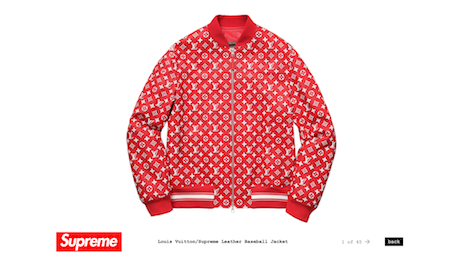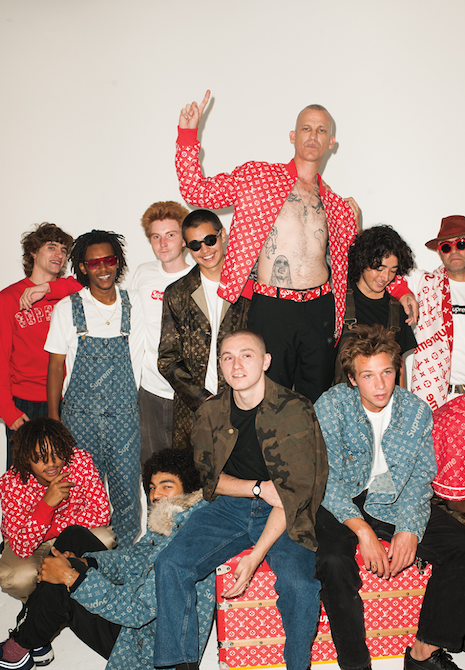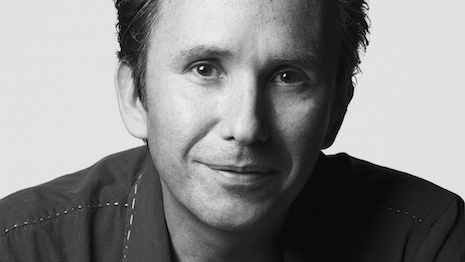 Supreme/Louis Vuitton collection 2017
Supreme/Louis Vuitton collection 2017
By Wolfgang Schaefer and JP Kuehlwein As we embarked on extensive research into what drives the sustained success of certain premium-priced brands for our latest book, we confirmed a big shift in how the need for – and expression of – prestige through brands manifests itself across categories and countries. Old rules of prestige brand making – price, provenance, precious materials – are still present, but new ones have established themselves next to them, sometimes in defying opposition. Classic categorizations such as “luxury,” “premium” or “mass” are in flux, with new ones such as “affordable luxury,” “masstige” or “super-premium” coming and going. How do you define a Supreme, the brand that sells limited-edition fashion and apparel items at outrageous prices to skateboarders – or rather those who want to feel like those cool members of the skateboard, hip-hop, punk rock and youth culture scene? The average skateboarder hardly has the money to buy these items. What do you call it when Damien Hirst puts his art on one of their boards or when Louis Vuitton launches a Supreme collection that outdoes the classic in hype and price? We are living through times of change, experiencing a lot of contradiction in our marketing- and branding-dominated worlds, but also excitement and intrigue.
 Supreme/Louis Vuitton collection 2017 lookbook
Supreme/Louis Vuitton collection 2017 lookbook
 Wolfgang Schaefer is chief strategic officer at Select World
Wolfgang Schaefer is chief strategic officer at Select World
| Sidebar: Why the term ueber-brands? |
| Why call this new breed of premium brands “ueber-brands?” It was the German philosopher Friedrich Nietzsche who coined the term “ueber-mensch” (loosely translated as “super-man”) in his 1873 masterpiece “Also Sprach Zarathustra.” The term describes someone – the German “mensch” is appropriately gender-neutral – who is willing to take risks to try and advance humanity beyond personal benefit and comfort. He or she establishes new values that influence the lives of others, inspiring and guiding them to a higher level, self-determined instead of being driven by external authority or sheer opportunity. |
| And that is exactly what strong brands do today, especially modern prestige ones. They have increasing social and cultural significance. They are no longer just beacons of status or building blocks of our identities. They are morphing into mythical fixtures and leaders, sometimes creating movements not unlike religions or political parties. They have created and become narrative constructs that inspire our public discourse, provide meaning to rally around or to reject, influencing and often guiding our lives, not just materially or functionally but emotionally, ethically and even spiritually. |
| Apple is the classic ueber-example, having built a cult not only around its superior design and innovative products, but ultimately its mission of making technology for the creative class. It has enshrined this mission into a myth, starting with the iconic commercial, “1984,” officially aired once during Super Bowl XX and establishing Apple as the David against the then-Goliath, IBM. A hammer-swinging youngster runs into a hall filled with brain-washed lemmings enraptured by Big Brother talking down on them, shattering the gigantic screen and crushing the whole aura and power of the establishment at the same time. That very instant, a countercultural icon was born. Although Apple has now become the establishment itself and most customers now do not even know about that commercial anymore, the spirit of the brand still lives, beguiling and guiding us to “Think Different” and re-inventing the way we shop electronics, listen to music or use watches on the way. Apple has stayed true to its archetypal character and that is why we have stayed true to them, enjoying the benefits of a well-catered lifestyle while still feeling a bit like the creative rebels we once were or always wanted to be. It is this attitudinal promise that made Apple the ultimate ueber-brand and us loyal, happily paying more for products that are not always “technically superior.” Apple continues to inspire and guide us – at least for now. |
 JP Kuehlwein is cofounder and partner at Ueber-Brands
JP Kuehlwein is cofounder and partner at Ueber-Brands
